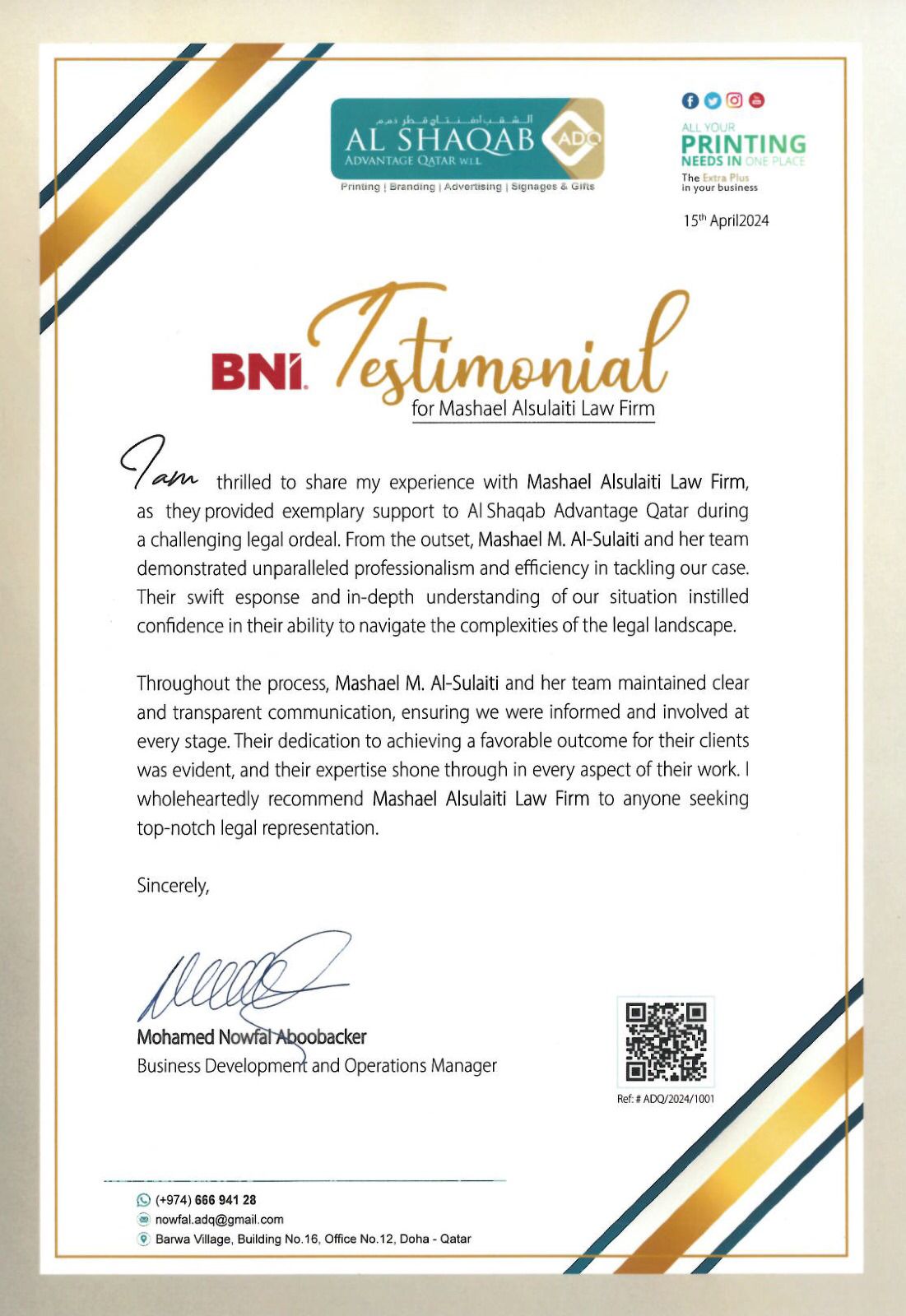Strengthening Corporate Governance in Qatar: The New QFMA Code for Listed Companies

Qatar has taken another significant step towards reinforcing transparency and accountability in its capital markets. On 4 August 2025, the Qatar Financial Markets Authority “QFMA” issued Decision No. 5 of 2025, introducing the Governance Code of Listed Companies (the “New Code”). Published in the Official Gazette on 17 August 2025, the New Code came into force immediately, while granting listed companies a one-year grace period, until August 2026, to align their structures and practices with the new requirements.
With more than 50 companies currently listed on the Qatar Stock Exchange “QSE”, this reform represents one of the most comprehensive corporate governance updates in recent years, one that will shape the future of listed entities and their engagement with shareholders, regulators, and the wider market.
1. Key Features of the New Code
v A Balance Between Urgency and Transition
The New Code is legally binding from the date of publication, yet companies are afforded a one-year transitional period to implement the necessary adjustments. This balance reflects the QFMA’s recognition of the importance of giving businesses time to adapt, while at the same time underlining the urgency of raising governance standards across the market.
For companies in the process of converting into a Qatari Public Shareholding Company (QPSC) or applying for listing on the QSE, the timing is particularly critical. These entities may need to revise their constitutional documents, update board charters, expand the composition of their boards, or amend draft prospectuses, all at short notice, to ensure alignment with the New Code.
v Broader Scope of Application
Unlike earlier codes, which distinguished between the Main Market and the Venture Market, the New Code applies uniformly to both. While only one company is currently listed on the Venture Market, the reforms anticipate growth in this segment and aim to establish consistent governance standards from the outset.
v A Wider Definition of “Insider”
In a move to close regulatory gaps, the New Code expands the definition of Insider to include Board Committee Members as well as the spouses and children of Insiders. This enhanced definition strengthens oversight and reflects international best practices in preventing misuse of confidential information.
v Higher Standards for Independent Directors
Perhaps the most notable reforms concern the role and independence of board members. The New Code introduces stricter eligibility criteria, requiring independent directors to have relevant qualifications and professional experience, while imposing shareholding and employment restrictions that extend to their first-degree relatives.
In addition, independent directors are now limited to two consecutive terms, and every listed company must appoint at least three independent directors, regardless of the total size of the board. For smaller boards, this will result in a significantly more independent structure, almost half the board in some cases, while larger boards will still need to strengthen their independent representation.
v Emphasis on ESG Responsibilities
The New Code also places Environmental, Social, and Governance (ESG) considerations firmly on the agenda of QSE-listed companies. For the first time, companies are required to evaluate and disclose the impact of their activities not only on governance but also on the environment and society. This shift highlights Qatar’s growing alignment with global sustainability trends and the expectations of international investors.
v Flexibility in Compliance Deadlines
While the general deadline for compliance is August 2026, the QFMA Chairman has discretion to grant an additional one-year extension, offering flexibility for companies that may require more time to fully adapt.
2. Implications for Qatari Businesses
The introduction of the New Code reflects Qatar’s determination to modernize its corporate governance framework and to ensure that listed companies operate with greater transparency, accountability, and responsibility. For businesses, this means more than just ticking regulatory boxes, it requires a comprehensive review of governance practices, board composition, insider policies, and ESG strategies.
Companies that begin preparations early will not only avoid compliance risks but also position themselves as leaders in corporate governance, gaining the confidence of investors, regulators, and the public.
3. Conclusion
The QFMA Governance Code of 2025 represents a new chapter in the evolution of Qatar’s capital markets. By introducing stricter board independence requirements, expanding the definition of insiders, and embedding ESG responsibilities, the Code sets a higher bar for governance that is more closely aligned with international standards.
Recent News
- H.H. the Amir Issues Landmark Amendments to the Civil Human Resources Law to Strengthen Incentives and Government Excellence
- تطور تشريعي يعيد رسم ملامح مهنة المحاماة في دولة قطر: أبرز ملامح التعديلات الواردة بالقانون رقم (19) لسنة 2025
- A New Era for Qatar’s Legal Profession: Key Reforms Under Law No. 19 of 2025

